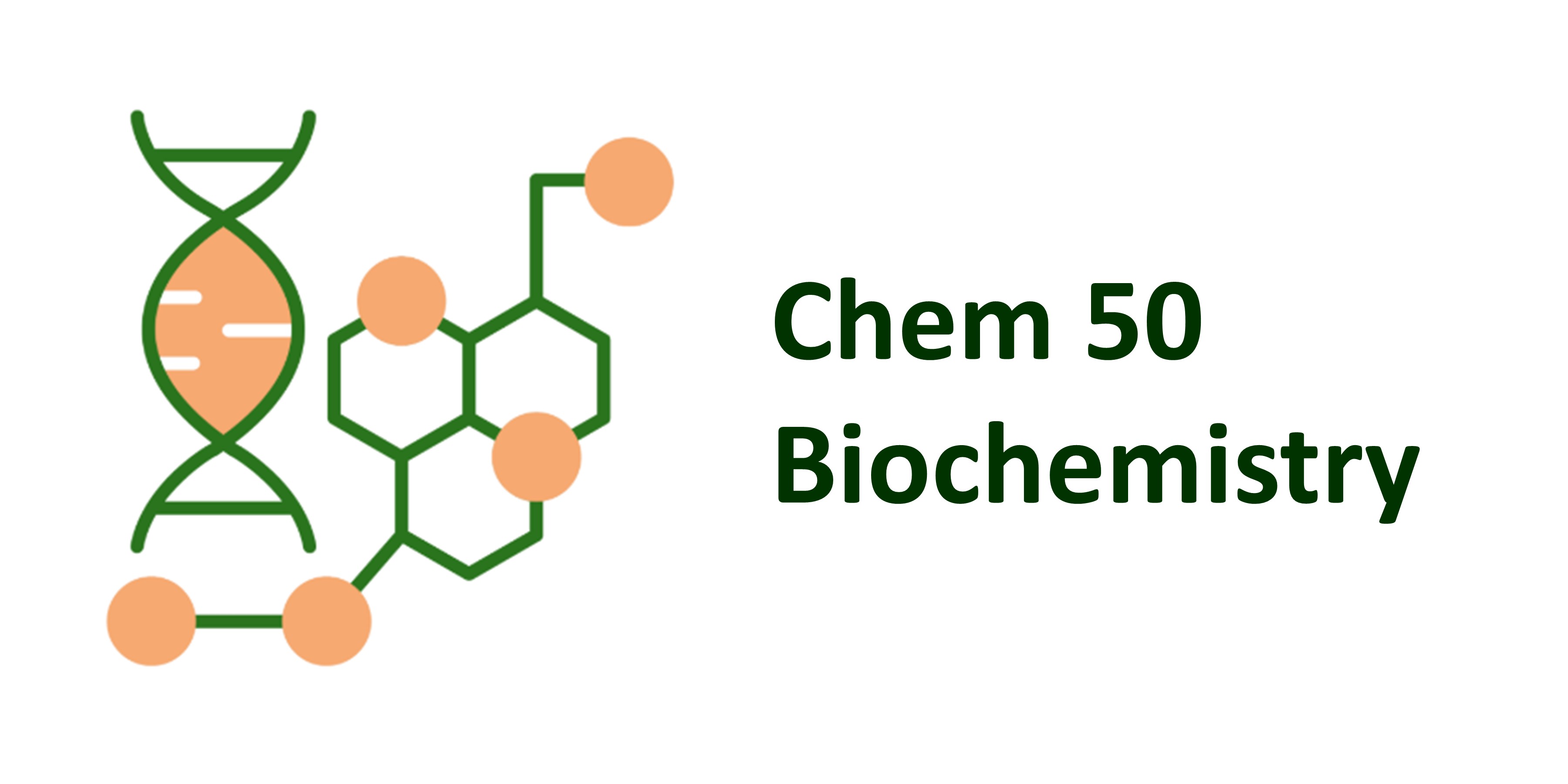
Chem 50 - Biochemistry
This course introduces the chemical principles underlying biological systems. It focuses on the structure, properties, and functions of biomolecules; enzyme activity; metabolism; and basic molecular biology concepts, emphasizing their relevance to health, nutrition, and life sciences.

Living Systems: Concepts and Dynamics
Principles, interactions, and contemporary issues concerning living systems.

ENS 255 - Water and Wastewater Treatment
Water and wastewater treatment is an important part of our environment. It is essential for protecting public health, preserving natural resources, and maintaining a healthy environment. This course will provide students with the knowledge they need to understand how water and wastewater are treated, as well as the regulations that govern these processes. By understanding these concepts, students will be better prepared to make informed decisions about water and wastewater management in their communities.

ENS 251 - Environmental Chemistry and Physics
Chemical and physical principles that govern the natural environment (atmosphere, hydrosphere, and lithosphere) and the impacts of human activity on Earth’s chemical systems

Science 10-G (21696)
Human beings have constantly endeavored to understand and make sense of the physical world and the processes, natural or caused by human beings, that occur in it. As Stephen Hawking said in his book A Brief History of Time: From Big Bang to Black Holes, “Today we still yearn to know why we are here and where we came from. Humanity’s deepest desire for knowledge is justification enough for our continuing quest. And our goal is nothing less than a complete description of the universe we live in.”
Human beings have the capacity and capability to observe, see patterns, make generalizations, and explore predictions. It is with this scientific lens that the universe and our home planet, the earth, have become less formidable and truly fascinating to study. Through theories and concepts in physics, chemistry, and earth science, this GE course intends to help you gain a better understanding of our physical world, its origins and the changes it undergoes, and to appreciate the methods of inquiry that have enabled this understanding and the directions of future explorations.

Science 10-E (21694)
Human beings have constantly endeavored to understand and make sense of the physical world and the processes, natural or caused by human beings, that occur in it. As Stephen Hawking said in his book A Brief History of Time: From Big Bang to Black Holes, “Today we still yearn to know why we are here and where we came from. Humanity’s deepest desire for knowledge is justification enough for our continuing quest. And our goal is nothing less than a complete description of the universe we live in.”
Human beings have the capacity and capability to observe, see patterns, make generalizations, and explore predictions. It is with this scientific lens that the universe and our home planet, the earth, have become less formidable and truly fascinating to study. Through theories and concepts in physics, chemistry, and earth science, this GE course intends to help you gain a better understanding of our physical world, its origins and the changes it undergoes, and to appreciate the methods of inquiry that have enabled this understanding and the directions of future explorations.

Science 10-D (21693)
Human beings have constantly endeavored to understand and make sense of the physical world and the processes, natural or caused by human beings, that occur in it. As Stephen Hawking said in his book A Brief History of Time: From Big Bang to Black Holes, “Today we still yearn to know why we are here and where we came from. Humanity’s deepest desire for knowledge is justification enough for our continuing quest. And our goal is nothing less than a complete description of the universe we live in.”
Human beings have the capacity and capability to observe, see patterns, make generalizations, and explore predictions. It is with this scientific lens that the universe and our home planet, the earth, have become less formidable and truly fascinating to study. Through theories and concepts in physics, chemistry, and earth science, this GE course intends to help you gain a better understanding of our physical world, its origins and the changes it undergoes, and to appreciate the methods of inquiry that have enabled this understanding and the directions of future explorations.

Science 10-C (21692)
Human beings have constantly endeavored to understand and make sense of the physical world and the processes, natural or caused by human beings, that occur in it. As Stephen Hawking said in his book A Brief History of Time: From Big Bang to Black Holes, “Today we still yearn to know why we are here and where we came from. Humanity’s deepest desire for knowledge is justification enough for our continuing quest. And our goal is nothing less than a complete description of the universe we live in.”
Human beings have the capacity and capability to observe, see patterns, make generalizations, and explore predictions. It is with this scientific lens that the universe and our home planet, the earth, have become less formidable and truly fascinating to study. Through theories and concepts in physics, chemistry, and earth science, this GE course intends to help you gain a better understanding of our physical world, its origins and the changes it undergoes, and to appreciate the methods of inquiry that have enabled this understanding and the directions of future explorations.

ENS 290 - Environmental Impact Assessment (RPG)
Introduces a set of procedures that generally attempts to identify, predict and evaluate the impact of legislative proposals, policies, programs, projects and operational procedures on the biophysicochemical and socioeconomic components of the environment, and on human health and well-being.

Chem 50.1 - Elementary Biochemistry Laboratory
The Biochemistry Laboratory is an integral component of the biochemistry curriculum, designed to complement theoretical knowledge with hands-on practical experience. This laboratory course provides students with the opportunity to explore fundamental biochemical principles, techniques, and methodologies.

ENS293 - Research Techniques
Technical experience on or off campus, with the specifics of the syllabus customized by the faculty in charge to meet the needs or interests of an individual or a small group of students with the main goal of knowledge acquisition (either laboratory, field, or both) which are relevant to the envisioned thesis

Elementary Organic Chemistry - B (2023-2024)
Organic chemistry is the study of the chemistry of carbon compounds: their structure, properties, bonding, stereochemistry, reactions, and reaction mechanisms. Emphases throughout the course include IUPAC nomenclature for organic molecules, the behavior, and properties of chemicals with a variety of functional groups, and conceptual methods of synthesizing different organic compounds.

Elementary Organic Chemistry - A (2023-2024)
Organic chemistry is the study of the chemistry of carbon compounds: their structure, properties, bonding, stereochemistry, reactions, and reaction mechanisms. Emphases throughout the course include IUPAC nomenclature for organic molecules, the behavior, and properties of chemicals with a variety of functional groups, and conceptual methods of synthesizing different organic compounds.

Waste Mangement (Wastewater)
This course introduces wastewater management and offers students the opportunity to gain understanding in wastewater treatment, its principles and practices.

Probing the Physical World
Human beings have constantly endeavored to understand and make sense of the physical world and the processes, natural or caused by human beings, that occur in it. As Stephen Hawking said in his book A Brief History of Time: From Big Bang to Black Holes, “Today we still yearn to know why we are here and where we came from. Humanity’s deepest desire for knowledge is justification enough for our continuing quest. And our goal is nothing less than a complete description of the universe we live in.”
Human beings have the capacity and capability to observe, see patterns, make generalizations, and explore predictions. It is with this scientific lens that the universe and our home planet, the earth, have become less formidable and truly fascinating to study. Through theories and concepts in physics, chemistry, and earth science, this GE course intends to help you gain a better understanding of our physical world, its origins and the changes it undergoes, and to appreciate the methods of inquiry that have enabled this understanding and the directions of future explorations.
